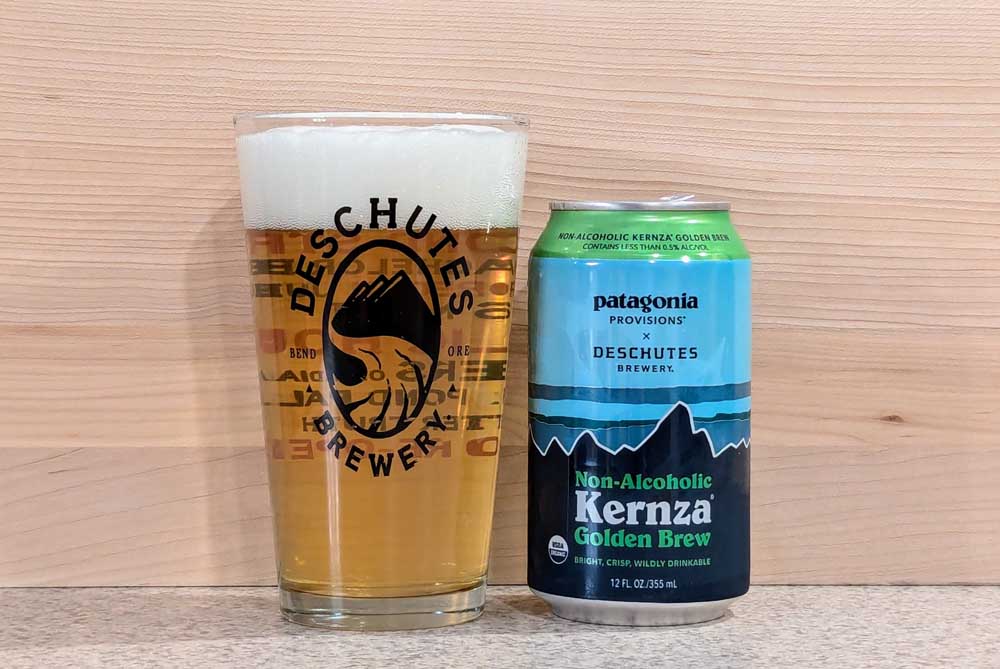Deschutes brews first certified-organic non-alcoholic beer in U.S.
Published 10:30 am Monday, November 18, 2024

- Deschutes Brewery won a gold medal for NA Kernza Golden Brew at this year’s Great American Beer Festival, in the “Specialty Non-Alcohol Beer” category. It drinks like an American lager.
Deschutes Brewery recently introduced two new certified organic beers brewed in collaboration with Patagonia Provisions — Kernza Lager and Non-Alcoholic Kernza Golden Brew. Both are named for the perennial grain product Kernza used in the brewing process.
Kernza is the trademark name for the processed grain of an intermediate wheatgrass (scientific name Thinopyrum intermedium) being developed at The Land Institute, an organization working to develop alternatives to current agricultural practices.
Sustainable grain
Intermediate wheatgrass is a grass that produces seeds that are similar to wheat. It can be grown as a perennial grain crop, meaning that it lives and remains productive for at least two or more years; by contrast, most commercial grain crops (including wheat, rye, and corn) are annual and need to be replanted every year.
As a perennial crop, this has implications for long-term sustainability in grain production, including improving soil health, reducing erosion, sequestering carbon, and protecting water resources, all important factors in dealing with climate change and similar ecological challenges.
As a grain product, Kernza can be used in place of wheat as a whole grain or as flour, and is promoted as having a sweet, nutty flavor. In addition to a role in baking, it can of course be used in brewing as well.
Brewing with Kernza
Deschutes isn’t the first brewery to team up with Patagonia Provisions to brew with Kernza; other breweries include Hopworks Brewery of Portland, Aslan Brewing Company of Washington, and Tröegs Independent Brewing of Pennsylvania.
It is, however, the first to brew a non-alcoholic beer with the perennial grain, which also happens to be the first certified organic non-alcoholic beer widely available in the United States.
It’s gaining attention as well; Deschutes won a gold medal for NA Kernza Golden Brew at this year’s Great American Beer Festival, in the “Specialty Non-Alcohol Beer” category.
In addition to the specialty grain, both Kernza Lager and the non-alcoholic version were brewed with organic two-row malt and Regenerative Organic Certified rye malt, as well as organic Helios and Adeena hops.
Non-alcoholic tasting notes
The NA Golden Brew was created using the BrewVo system from Sustainable Beverage Technologies, a patented process that removes the alcohol from a full-strength beer. Deschutes’ other non-alcoholic beers, Black Butte NA and Fresh Squeezed NA IPA, are also created using this technology, which the company installed in-house this year.
I picked up a six-pack of the NA Kernza to try it out for myself. It’s less than 0.5% alcohol by volume (the legal limit by which it can be called non-alcoholic) with 15 IBUs.
It pours a pale yellow with a fine, dense white head of foam. The aroma is light and grainy, with notes of raw wheat kernels and a breakfast cereal character. There’s little to no hop character in the nose that I can detect.
It drinks like an American lager, light and grainy with a hint of sweet malt or bread dough in the flavor, and a bit of nuttiness. There’s a mild spiciness of rye that adds an interesting element, and mellow hops contribute to this soft spice character. It’s light-bodied in the mouthfeel and clean with a lightly grainy aftertaste.
I found it to be quite good, possibly able to pass for a standard light American lager without overtly signaling that it’s non-alcoholic. Similarly, I didn’t find anything unusual with the use of the Kernza in the brew.
For those beer drinkers looking for NA alternatives, this is definitely a beer to consider, and the focus on organic ingredients and sustainability is a bonus. I don’t know what the future of perennial grains like Kernza looks like in brewing, but I do expect we’ll see more of these types of beers in the coming years.
Both the Lager and the Golden Brew are available in cans at a number of retail locations.






